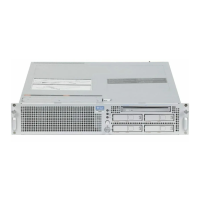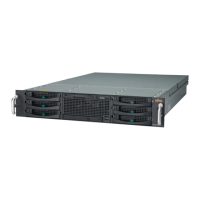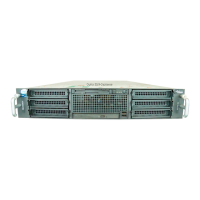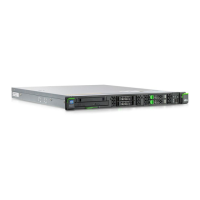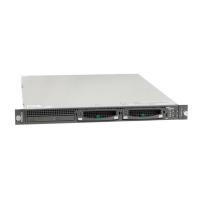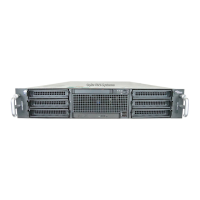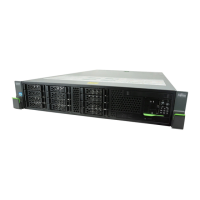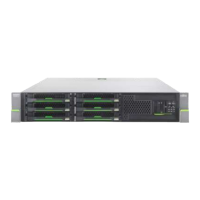U41840-J-Z125-7-76 189
● Delete a NAS share from the system (see "Deleting a NAS Share" on page 193).
NAS Shares List
The NAS Shares List section displays the following information for all NAS shares on the
ETERNUS CS800:
● Shares - The number of shares that have been added to the system.
● Maximum - The maximum number of shares that can be added to the system.
● NFS - The number of existing shares configured to use the NFS protocol (for Linux
networks).
● CIFS - The number of existing shares configured to use the CIFS protocol (for Windows
networks).
● Share Name - The name of the share.
● Protocol - The protocol (CIFS or NFS) the share is configured to use.
For NFS shares, the Protocol column displays the commit type of the share (NFS sync
for synchronous or NFS async for asynchronous). For information about changing the
commit type of NFS shares, see the Command Line Interface (CLI) Guide.
● Export Path - The export path of the share (different for CIFS and NFS shares).
● Deduplication - The data deduplication state of the share (Enabled or Disabled).
● Permissions - The permissions in use on the share (Read & Write or Read Only).
● Access - The access type of the share (All hosts or specific users).
● Replication - The current state of replication for the share:
● Enabled - Replication is enabled.
● Send/Receive Sync ID - Directory/File Based Replication is enabled.
● Configure - Click to configure replication for the share (see "Editing a NAS Share"
on page 191)
● Scheduled - Replication is scheduled for the share. Click to view or modify the
schedule (see "Scheduling a Share or Partition for Replication" on page 281).
● Targets - The targets the share is configured to replicate to.
● Description - A brief description of the NAS share (if available).
I
Click a column heading to sort the rows in the table by that column. Click the column
heading again to reverse the sort order.

